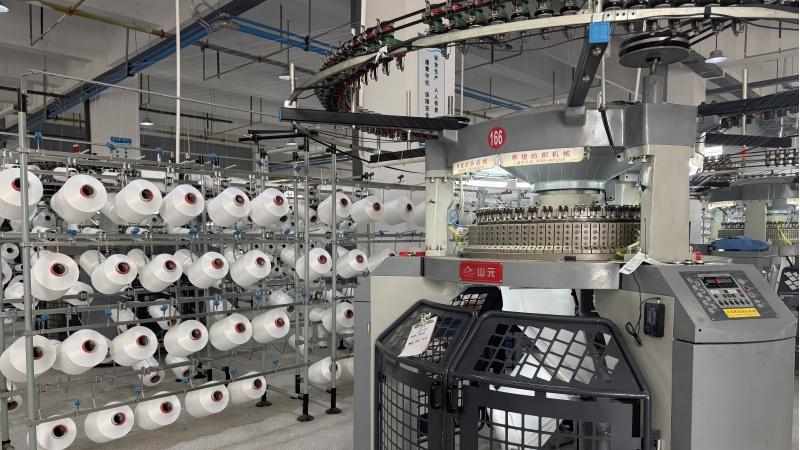Chinese researchers turn fungi into ice cream, postcards at agriculture expo
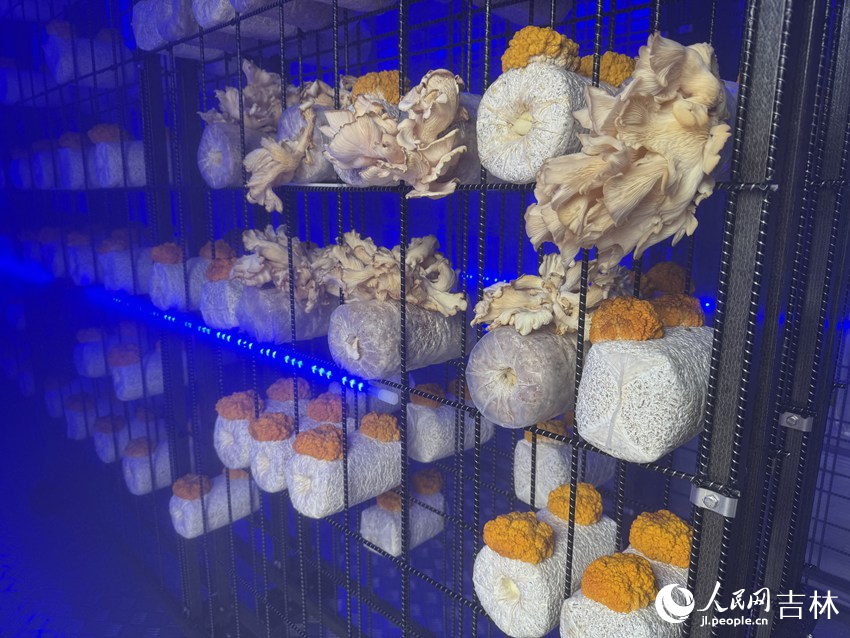
Oyster mushrooms and an edible fungus named Jin'er, or golden ear, grow inside a container-based smart cabin for cultivating rare fungi developed by a research team led by Chinese professor Li Yu. (People's Daily Online/Li Siyue)
Mushroom ice cream, edible postcards and pink fungi grown in high-tech containers drew crowds at an agricultural expo in northeast China's Jilin Province, showcasing how researchers are transforming traditional farming with cutting-edge biotechnology.
The research team led by Li Yu, who is an academician of the Chinese Academy of Engineering and a professor at Jilin Agricultural University, presented a comprehensive overview of the fungi industrial chain through exhibits ranging from new varieties to smart cultivation facilities, creative processed products and cultural items.
The exhibits captivated visitors at the 24th China Changchun International Agriculture and Food Expo held in Changchun, capital of Jilin Province.
The team's patented smart cabin for growing rare edible fungi was featured prominently in the modern fungi demonstration zone.
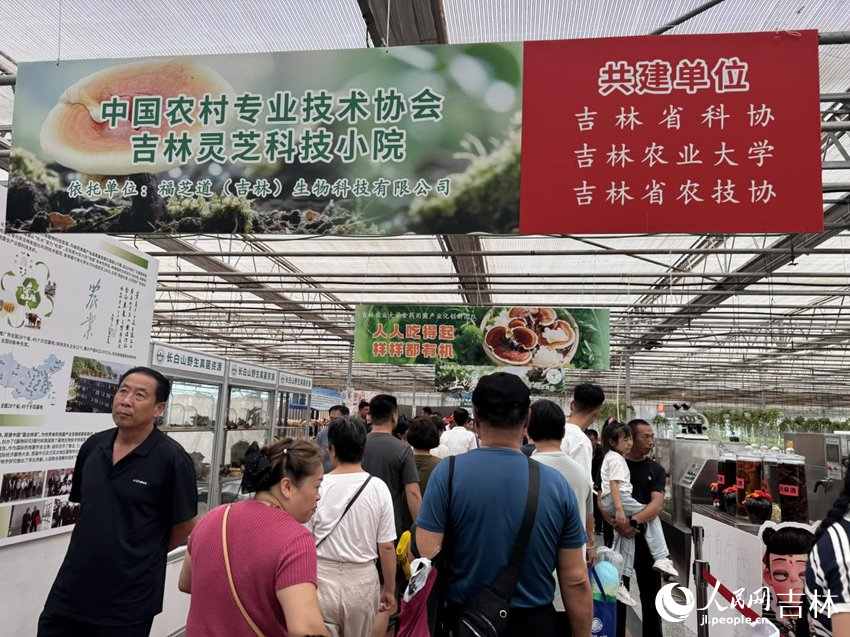
Visitors explore the fungi cultivation exhibition hall at the 24th China Changchun International Agriculture and Food Expo held in Changchun, capital of northeast China's Jilin Province. (People's Daily Online/Li Siyue)
"Equipped with an artificial intelligence-powered system, the cabin allows for precise monitoring and real-time fine-tuning of temperature, light, humidity, carbon dioxide levels, as well as other factors in the mushroom growth environment," said Duan Xiulian, who leads efforts to commercialize the team's research.
The facility's remote monitoring and automatic alarms have transformed weather-dependent traditional greenhouse farming, Duan said. The technology improves yield and quality while enabling scalable, intelligent fungi production.
Unusual pink mushrooms became crowd favorites as visitors snapped photos of the colorful new variety.
"It's the first time I've seen pink wood ears! Are they dyed?" one visitor asked.
Duan said the color was achieved naturally through gene-editing technology.
Dubbed the "highest-ranking imperial concubine wood ear" for its appearance, the variety also has higher nutritional value than traditional wood ears, Duan said.
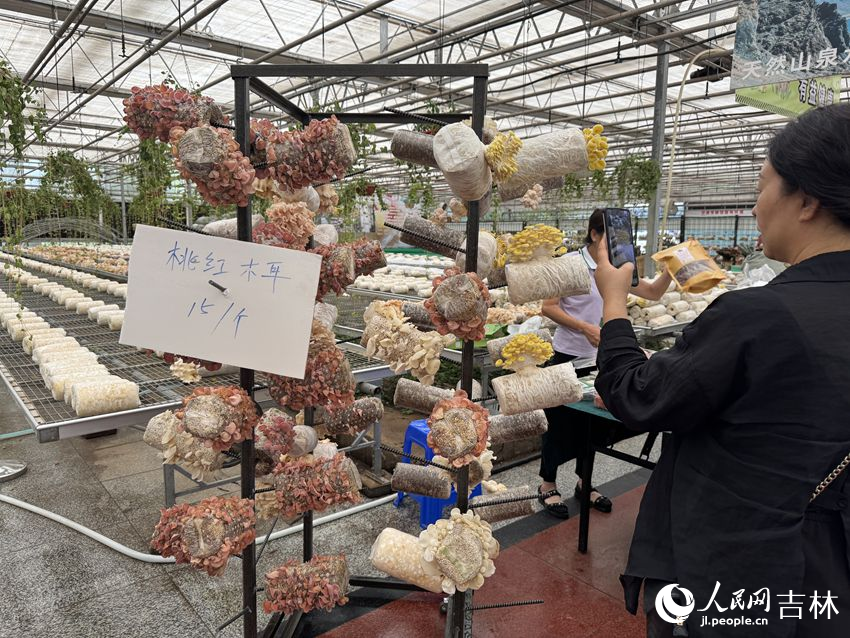
Pink wood ears developed by a research team led by Chinese professor Li Yu draw attention at the 24th China Changchun International Agriculture and Food Expo held in Changchun, capital of northeast China's Jilin Province. (People's Daily Online/Li Siyue)
Postcards made from mushroom fibers also intrigued many expo visitors. The material is the same as that used for Jilin Agricultural University's edible "mushroom admission notices" that gained widespread attention on Chinese social media platforms earlier this year.
"This type of paper, made from the special mushroom fibers, does not require the alkali treatment or bleaching steps of traditional papermaking. They are low-carbon, eco-friendly and healthy," Duan said.
Various mushroom-based food and wellness products were also displayed in the exhibition hall.
Highlights included dragon-shaped mushroom ice cream made with white and pink wood ears and teas, beverages and health supplements featuring local Jilin ingredients.
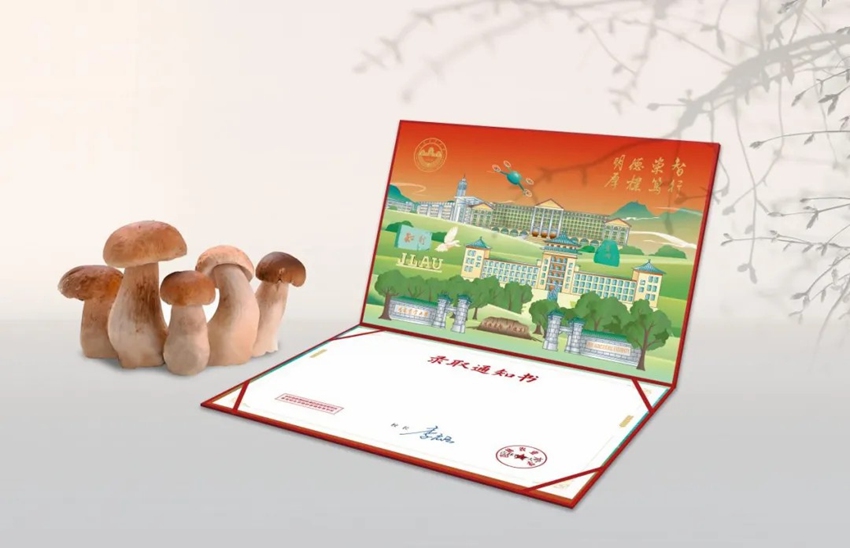
The inner page of Jilin Agricultural University's edible "mushroom admission notice" is made from mushroom fibers. (Photo courtesy of Jilin Agricultural University)
"By showcasing every link of the fungi industrial chain, from breeding and smart cultivation to deep processing, science education and cultural products, we want people to better understand the extraordinary charm and potential of fungi science and technology," Duan said.
The team will continue promoting research applications and commercialization to turn "little fungi" into a thriving industry for modern Chinese agriculture, Duan said.
Since early this year, Jilin has used reforms in its scientific and technological innovation systems to continuously improve the ecosystem for translating and commercializing research achievements.
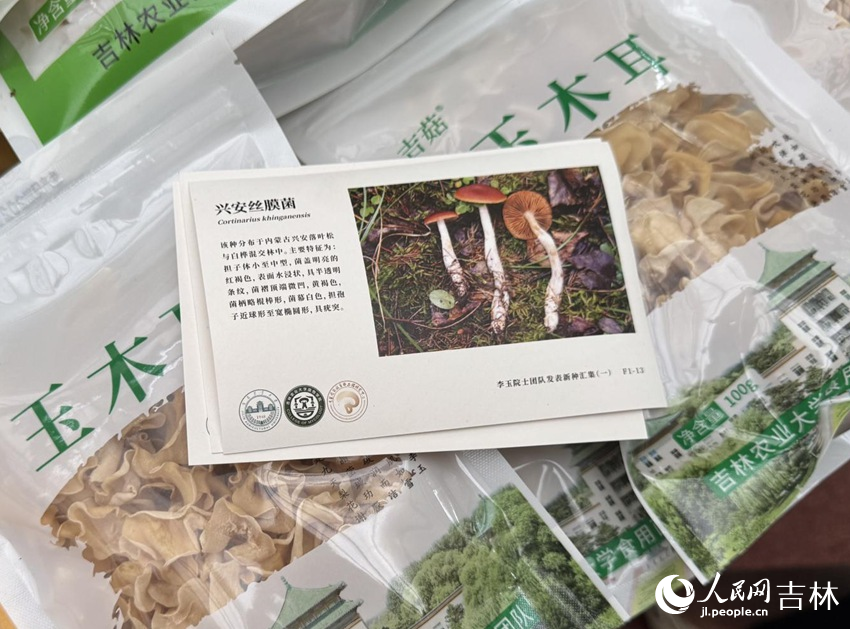
Postcards made from mushroom fibers are displayed at the 24th China Changchun International Agriculture and Food Expo held in Changchun, capital of Jilin Province. (People's Daily Online/Li Siyue)
In the first half of the year, the province registered 2,218 cases of commercialized research findings, up 46.9 percent year on year, with technology contract values reaching nearly 14.32 billion yuan ($2.01 billion), up 9.91 percent year on year.
China's edible fungi industry has grown explosively over the past four decades. Official data show the country's annual edible fungi output rose from 57,000 tonnes in 1978 to more than 40 million tonnes today, a 700-fold increase, making China a global leader in edible fungi.
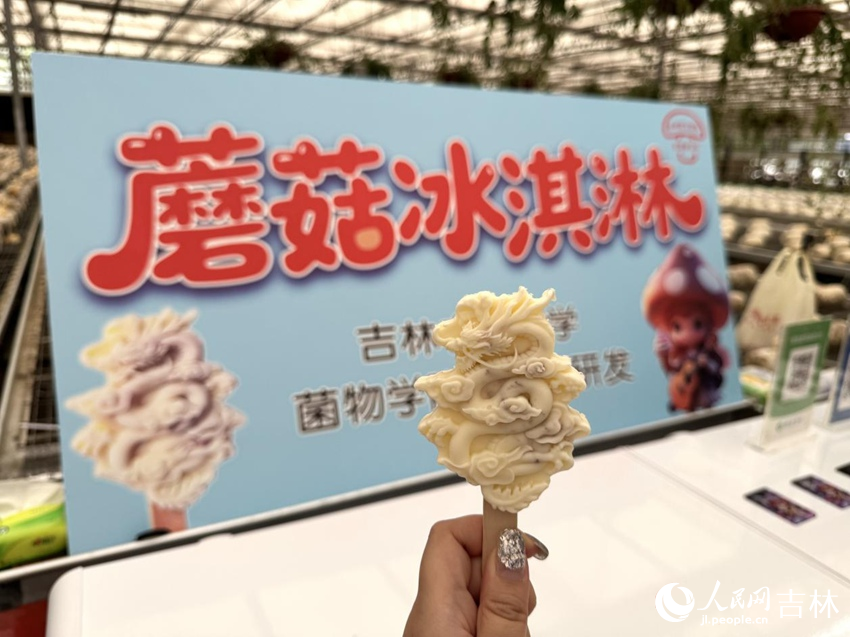
Mushroom ice cream featuring white and pink wood ears at the 24th China Changchun International Agriculture and Food Expo held in Changchun, capital of northeast China's Jilin Province. (People's Daily Online/Li Siyue)
Photos
Related Stories
- Edible fungus industry booms in county of SE China's Fujian
- SW China's Yunnan enters peak season for trading wild mushroom
- Man sells edible wild fungi in SW China's Yunnan to consumers nationwide through live-streaming
- Villagers pick edible wild fungi in mountains in SW China's Yunnan
- Edible wild fungi enter market in SW China's Yunnan
- UN official says Chinese Juncao technology holds key potential to contribute to achievement of UN SDGs
Copyright © 2025 People's Daily Online. All Rights Reserved.








